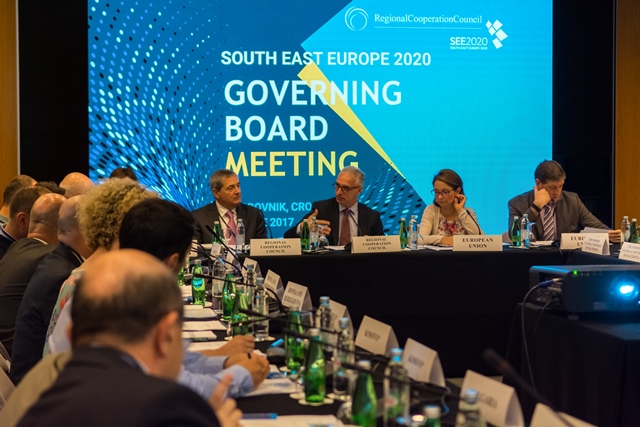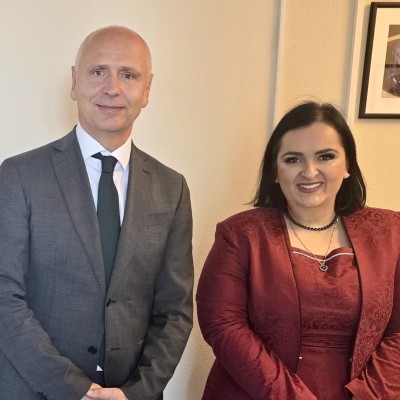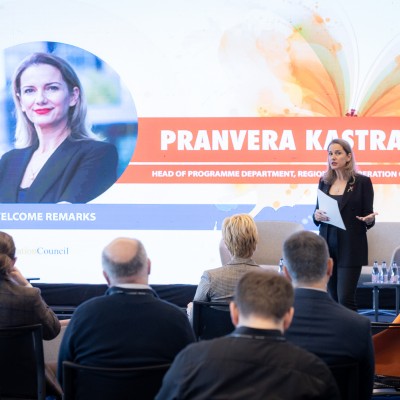Annual report on SEE 2020 Strategy implementation endorsed
28 June 2017

RCC’s SEE2020 Strategy Governing Board meeting in Dubrovnik, 28 June 2017 (Photo: RCC/Srdjan Kurajica & Klaudio Pozniak)
Dubrovnik – Governing Board of the Regional Cooperation Council’s (RCC) SEE 2020 Strategy (SEE 2020) endorsed the Annual Report on Strategy’s implementation (ARI). The fourth Meeting of the SEE 2020 Governing Board was held in Dubrovnik today, in the eve of the RCC’s Annual meeting.
Goran Svilanovic, Secretary General of the RCC stressed that the 2017 draft edition of ARI, reviewing the progress under the third year of the Strategy’s implementation, depicted varied implementation record and uneven progress.
“We summarize the overall progress as a return to a steady, though modest, growth pattern, with a positive trend expected in the coming period. There is also the long-awaited rebound in terms of employment and trade rebalancing. However, the regional aggregates are influenced mostly by a strong performance of a handful of economies and progress is not uniform across the board”, explained Svilanovic.
Nicholas Cendrowicz, Deputy Head of Unit for Regional Co-Operation and Programmes for the Western Balkans within DG NEAR reminded the present on the importance of dedication and commitment to full implementation of the SEE 2020 which is slowly but surely leading the region where it wants to be – economically and socially.
“Regional cooperation that leads to more foreign direct investments, easier and more efficient trading, open labour markets, more employment opportunities, digital agenda – all these and many more goals of the SEE 2020 will bring the region faster to the EU. On the EU side we are very much looking forward to the regions successes and keep it very high on our agenda.”
The Governing Board also heard presentation of the regional projections for the four new headline indicators, which would become the official headline targets once officially agreed upon. The progress of the Strategy implementation will be measured against the new targets within the next monitoring SEE 2020 cycles.
Additionally, separate session was dedicated to each of the SEE 2020 participating economies with the Governing Board participants to present “good practice” in the implementation, to boost engagement of individual economies in the process.
The meeting was concluded with the ‘looking beyond 2020’ session, during which the participants heard the presentation on the implementation status of the EU2020 Strategy, as well as the ongoing debates in the EU beyond 2020, which triggered reflection process on a SEE agenda beyond 2020.
The SEE 2020 Governing Board participants include ministers, deputy ministers and senior officials from the ministries responsible for EU integration; SEE 2020 National Coordinators and National IPA Coordinators. Its main task is to analyse the progress achieved in the previous year by adopting the SEE 2020 Strategy Annual Report on Implementation (ARI) and to initiate the new governance cycle of the SEE 2020 Strategy. The SEE 2020 Governing Board meets once a year and provides the opportunity to issue guidance and recommendations to the RCC Secretariat and other participants in the implementation of the Strategy.



